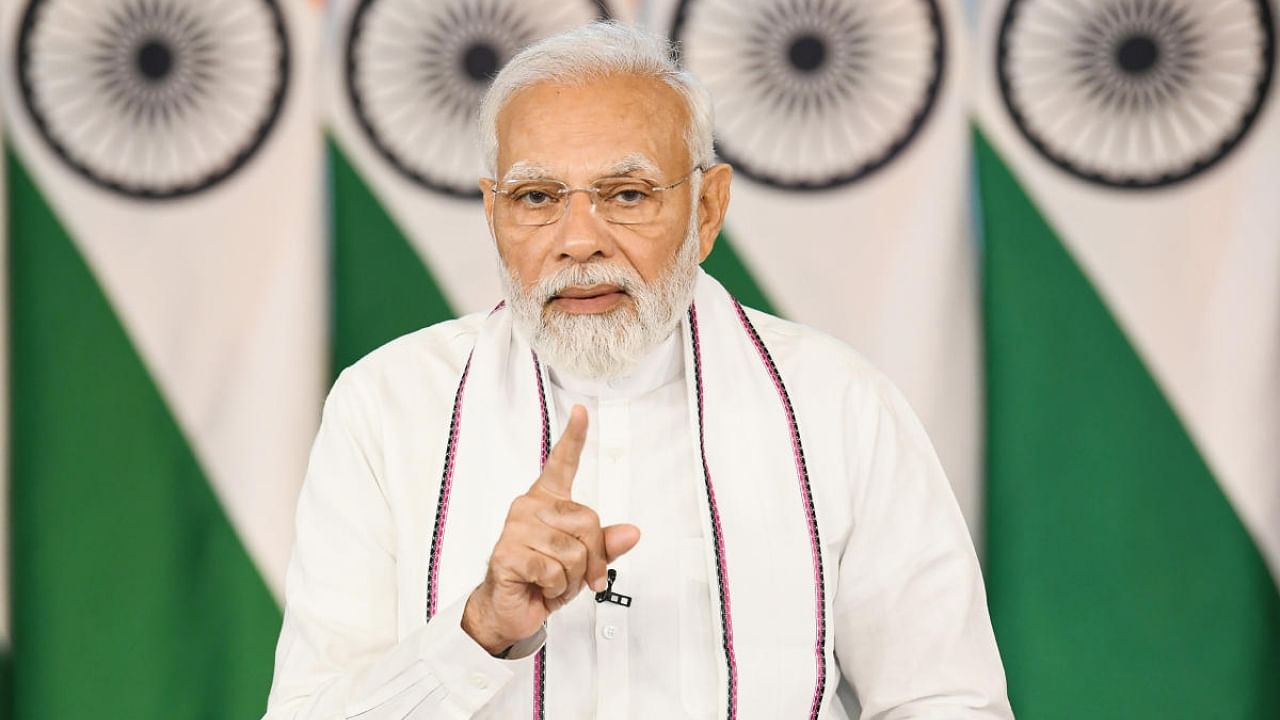
Amid forecasts of warmer-than-average summer months and a weak monsoon because of El Nino, weather phenomena likely to affect rabi and kharif crops, Prime Minister Narendra Modi chaired a meeting of top officials on Monday to review the country's preparedness.
According to a government statement, the PM instructed the Food Corporation of India (FCI) to ensure optimal storage of grains in extreme weather conditions. The PM said the government should prepare separate awareness material for different stakeholders on dealing with warmer than usual weather. He said the Indian Meteorological Department (IMD) must prepare daily weather forecasts that are easy to interpret and disseminate and stressed the need for detailed fire audits of all hospitals.
On February 20, the Centre set up a panel to monitor the impact of the rise in temperature on the wheat crop. Last week, the IMD said India reported the warmest February this year since 1877, linking it with global warming. It said much of India could experience extreme weather conditions in April and May. The IMD said April would be a better month to forecast the impact of El Nino conditions on the monsoon season.
However, Chief Economic Advisor V Anantha Nageswaran noted last week that there was uncertainty related to the monsoon because of El Nino activity.
On Monday, officials briefed the PM about the monsoon forecast, the impact of heat on rabi crops and the expected yield of major crops. The efforts underway to monitor irrigation water supply, fodder and drinking water were also reviewed. Officials said the PM was briefed about the preparedness of states and hospital infrastructure and the availability of required supplies and emergency preparedness. He was also updated on efforts underway across the country to prepare for disasters related to heat and mitigation measures in place.
The PM said separate awareness material should be prepared for citizens, medical professionals, municipal & panchayat authorities, and disaster response teams, such as firefighters. The PM suggested holding multimedia lecture sessions in schools to sensitise children on dealing with extreme heat conditions. He said protocols and dos and don'ts for hot weather should be prepared in accessible formats, and various other modes of publicity like jingles, films, pamphlets should be issued.
Apart from the IMD issuing daily weather forecasts in a manner which can be easily interpreted and disseminated, TV news channels and FM radio could spend a few minutes daily to explain the daily weather forecast in a manner which would allow citizens to take necessary precautions, officials said.
The Prime Minister stressed the need for detailed fire audits of all hospitals and that mock fire drills be done in all hospitals by firefighters. The need for a coordinated effort to deal with forest fires was also pointed out. Modi said availability of fodder and of water in reservoirs should be tracked.
PK Mishra, the principal secretary to the PM, cabinet secretary Rajiv Gauba, secretaries of ministries of home, health, agriculture and earth sciences and member secretary of the National Disaster Management Authority attended the meeting at 7 Lok Kalyan Marg, the statement said.